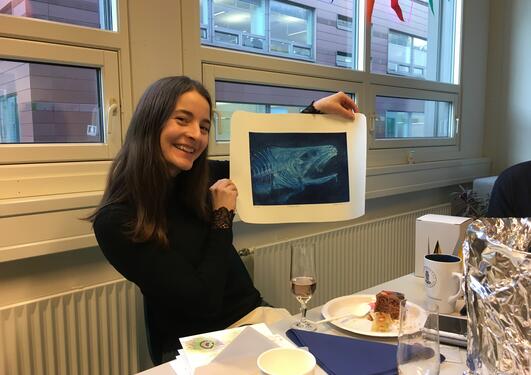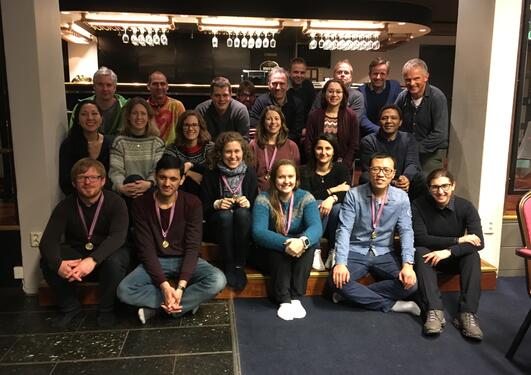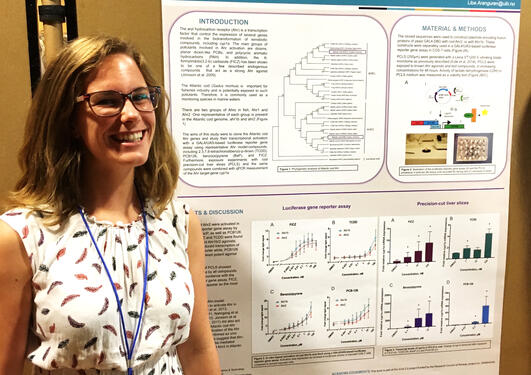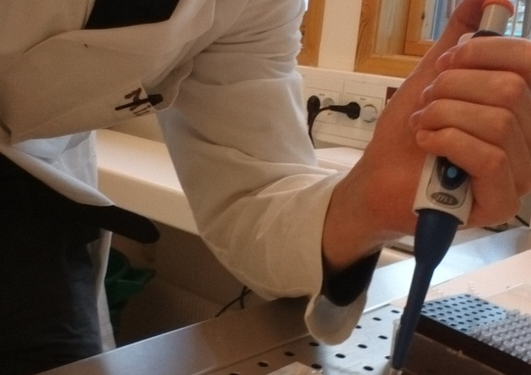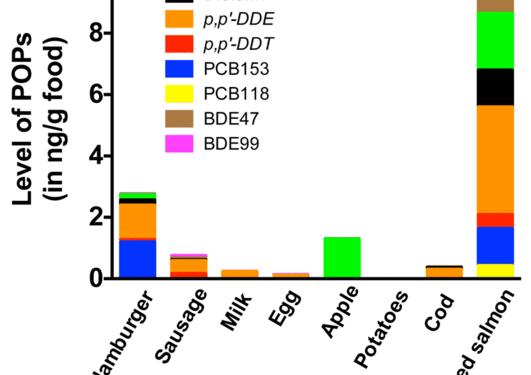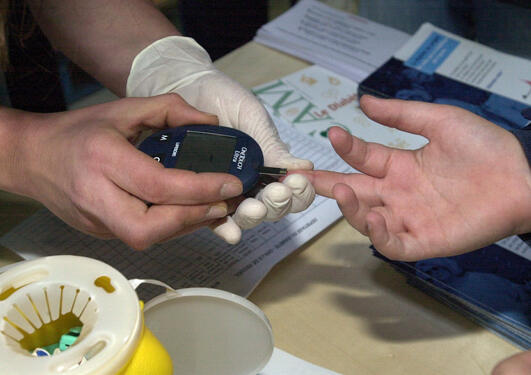News archive for Environmental toxicology
The Environmental Toxicology group attended the annual winter meeting at Beitostølen arranged by the Norwegian Society for Pharmacology and Toxicology (NSFT) amidst the breathtaking mountain winter landscape, taking home two presentation awards.
In her master thesis, Christine Tveiten Johansen, has studied how bisphenol compounds activate or inhibit estrogen receptor in Atlantic cod. She shows disturbing results of the substitute compounds can be more harmful that the known plastic additive bisphenol A.
With cakes, champagne and balloons, we have celebrated five master students this fall.
All of the students have done a good job – and we wish them the best of luck!
The first workshop in the dCod 1.0 project was organized at Voss during a busy December month. 22 participants from all Norwegian partners participated in discussions, cross-disciplinary crash courses, and teambuilding.
Several partners of the dCod 1.0 project participated in field studies in the Oslo fjord. The aim of the expedition was to study the pollution levels of cod in this popular area. For two of the four days they were joined by ecology students and teachers from the University of Oslo.
In September, dCod-members from Bergen travelled to two different conferences in Barcelona, Spain. As well as gaining insight into the most recent research, they also had the chance to meet old and new friends.
In a joint master project between the Environmental toxicology and Evolutionary Ecology research groups, Moritz Pohl is unveiling the secrets of the remarkable anoxia tolerance of bearded goby from Namibia.
Even low doses of environmental pollutants can threaten our health. The current epidemic of obesity and type 2 diabetes in western countries may be directly related to the effects of even small amounts of environmental pollutants on our bodies.
Recent research indicate that there may be a link between contaminants in food-stuff and the explosion in metabolic diseases, incl. type 2 diabetes, in the western world.
Although source of intense investigations, the origins of type 2 diabetes and obesity remain unclear.

Humans are daily exposed to many environmental pollutants. What are the health consequences of such exposures?

Jérôme Ruzzin, a post-doc in the Experimental Toxicology research group, was involved in a study with mice that provides more evidence that a diet high in farmed salmon contaminated by persistent organic pollutants - POPs - contributes to weight gain and increases the risk of diabetes.
- February 2024 (1)
- December 2019 (1)
- November 2017 (1)
- December 2016 (1)
- November 2016 (1)
- September 2016 (1)
- September 2014 (1)
- June 2013 (1)
- January 2013 (1)
- June 2012 (2)
- November 2011 (1)

